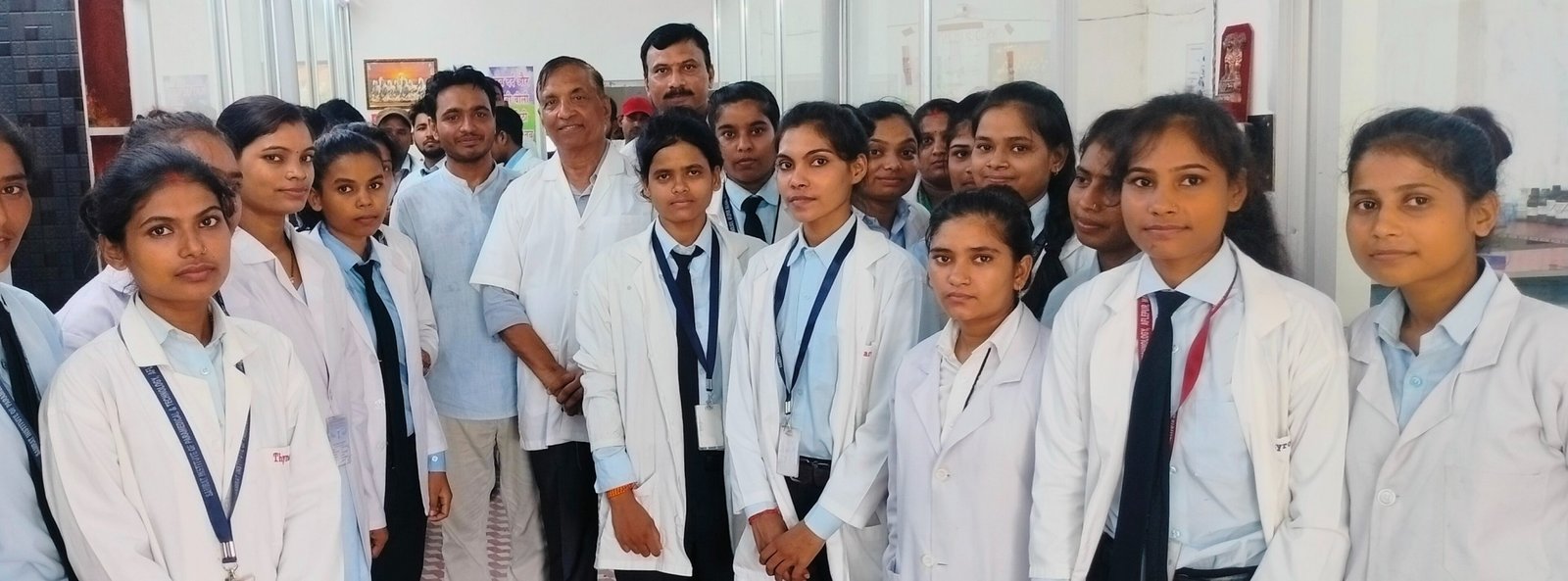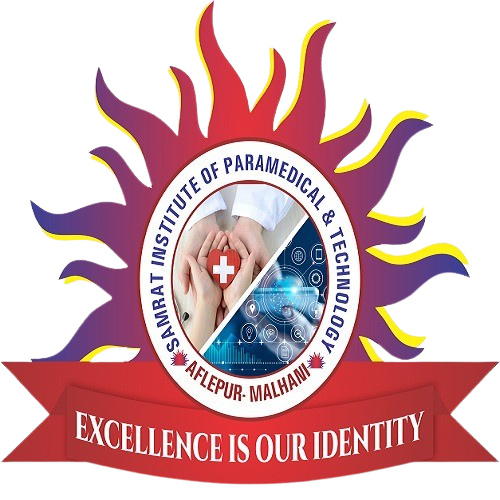Course DetailsHome / Courses Details
Diploma In Medical Lab Technology
The DMLT course typically spans over 2 years, depending on the institution, and aims to provide students with the foundational knowledge and practical skills necessary for working in medical labs. Students learn about various diagnostic techniques, laboratory management, and the use of advanced lab equipment.

Curriculum
The curriculum for the DMLT course usually includes:
-
Basic Sciences
- Anatomy
- Physiology
- Biochemistry
- Pathology
- Microbiology
-
Core Laboratory Subjects
- Clinical Hematology
- Clinical Biochemistry
- Clinical Pathology
- Medical Microbiology
- Immunology and Serology
- Histopathology
-
Practical Training
- Phlebotomy techniques
- Sample collection and handling
- Laboratory safety protocols
- Use of laboratory equipment and instruments
- Diagnostic test procedures
-
Management and Ethics
- Laboratory management
- Medical ethics and professional conduct
Instructors
The instructors for the DMLT course typically include experienced professionals from the medical and healthcare fields. They may include:
- Pathologists: Experts in diagnosing diseases by examining body tissues and fluids.
- Microbiologists: Specialists in studying microorganisms and their effects on human health.
- Biochemists: Professionals focusing on the chemical processes within and related to living organisms.
- Clinical Laboratory Technicians: Skilled practitioners who perform tests and procedures in medical laboratories.
Reviews
Reviews of the DMLT course can vary based on the institution offering the program. Generally, students appreciate the hands-on training and the comprehensive coverage of laboratory techniques. Some common positive feedback includes:
- Practical Experience: Students value the extensive practical training that prepares them for real-world laboratory work.
- Expert Faculty: The knowledge and experience of the instructors are often highlighted as a key strength.
- Career Opportunities: Graduates typically find good job prospects in hospitals, diagnostic centers, and research labs.
